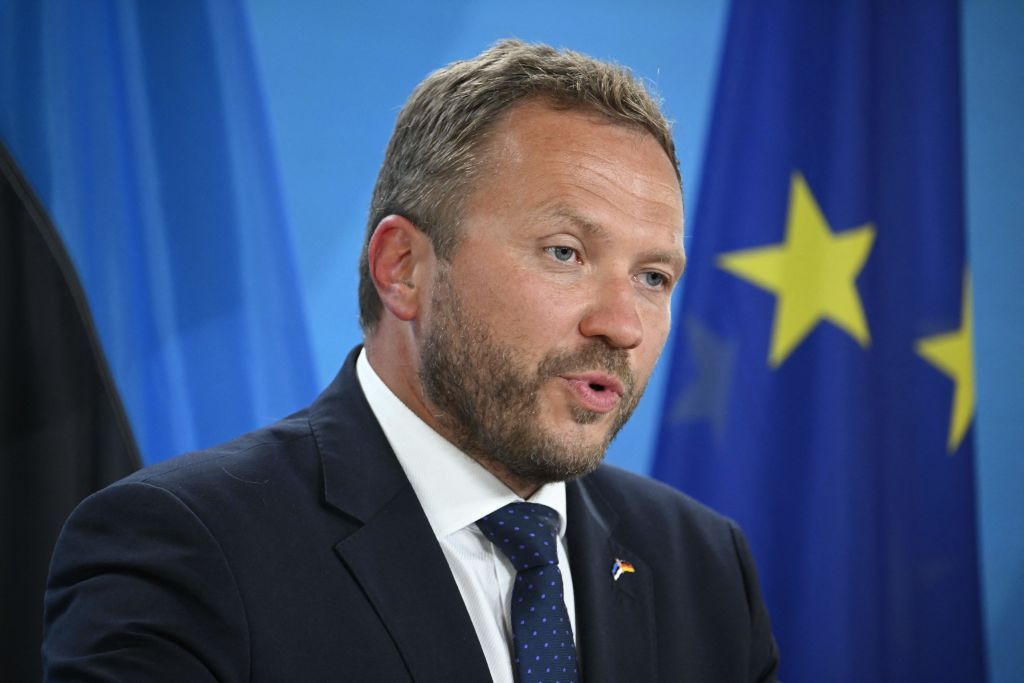Estonian Foreign Minister Margus Tsahkna expressed interest in joining the Czech-led initiative to purchase critically-needed artillery shells for Ukraine during a joint press conference with his Czech counterpart Jan Lipavsky. As Ukraine’s munitions stocks dwindle and a U.S. aid bill remains blocked in Congress, countries like Estonia are stepping up to support Ukraine. The Czech President Petr Pavel previously identified available shells outside Europe that could be purchased and sent to Ukraine once funds are allocated. Many countries, including Belgium, the Netherlands, Germany, Sweden, Canada, Poland, France, and Denmark, have already contributed funds to the initiative. Italy has also reported that contracts for 1 million artillery shells for Ukraine have been finalized, with shipments expected in April. Estonia, a leading military donor to Ukraine in terms of GDP, plans to allocate 0.25% of its GDP to military assistance for Kyiv over the next four years.
Sweden, which became NATO’s 32nd member state in March 2024, is also stepping up its aid to Ukraine amid the heightened tensions in European security following Russia’s invasion of Ukraine. The decision to join NATO comes during a turbulent time in European security, with Russia increasing its military activities. As countries like Estonia and Sweden pledge support for Ukraine, the need for assistance is clear as the country’s defense capabilities are put to the test. The solidarity and cooperation among European countries in supporting Ukraine’s defense efforts demonstrate a united front against external threats and aggression.
The stalled U.S. aid bill for Ukraine, which would allocate $60 billion for the country, highlights the challenges in securing international support for Ukraine. Despite pressure from the White House and other members of Congress, political fighting has hindered the passing of the bill. In the absence of this aid, other countries such as Estonia and Sweden are stepping in to provide assistance. The Czech-led initiative to purchase artillery shells for Ukraine has garnered support from various European countries, reflecting a collective effort to bolster Ukraine’s defense capabilities.
The involvement of multiple countries in supporting Ukraine’s defense efforts through initiatives like purchasing artillery shells demonstrates a shared commitment to upholding security and stability in the region. As Estonia and Sweden pledge to allocate a portion of their GDP to military assistance for Ukraine, they are contributing to the broader goal of supporting Ukraine’s sovereignty. The collaboration among European nations in providing military aid to Ukraine highlights the importance of solidarity and cooperation in addressing security challenges in the region.
The decision of countries like Estonia and Sweden to support Ukraine’s defense efforts underscores the significance of international cooperation in upholding security and stability in the face of external threats. By pledging financial assistance and contributing to initiatives like the purchase of artillery shells, these countries are showing solidarity with Ukraine and reinforcing the importance of standing together in the face of aggression. The continued support from European nations demonstrates a united front in safeguarding Ukraine’s sovereignty and protecting the region from destabilizing influences.
As Estonia and Sweden, along with other European countries, continue to provide military aid and support to Ukraine, they are sending a clear message of solidarity and determination to defend shared values of security and stability. The collective efforts to strengthen Ukraine’s defense capabilities through initiatives like purchasing artillery shells exemplify a united front against external threats. By standing together and supporting Ukraine in its time of need, countries are demonstrating their commitment to upholding peace and security in the region. The support for Ukraine’s defense efforts reflects a shared responsibility to protect the sovereignty and territorial integrity of nations facing aggression and external pressures.


